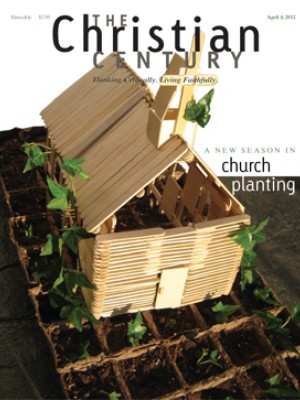Longing for certainty
One of the saints in my life died recently. I knew about Presbyterian pastor Harry Geissinger because of his prominence in the Pennsylvania town of my youth. But then one day I met him for a lunch meeting—one that I'll never forget.
I was trying to decide whether I would continue on the path toward ordained ministry. Big questions loomed. Was I going to go through with this? Could I be certain that the path I was on was the right one? Had I explored all the other possibilities?
I explained to my pastor that I wasn't sure about my decision. Finishing the degree, I reasoned, would lead to ordination and a "career path." Those ought to come with a degree of certainty, but I wasn't sure—and to say yes to this path was to say no to so many other possibilities. My pastor suggested I talk with Harry Geissinger.
Read our latest issue or browse back issues.
When I explained my struggle, Geissinger told me that on the morning of his wedding day he looked at himself in the bathroom mirror and wondered if he'd made the right decision. He sat on the edge of the bathtub with his head in his hands, wishing he felt absolutely certain about the vows he was about to make. He proceeded with the wedding, which turned out happily. He went on to say that over the course of his life he'd learned that the more important the decision, the more one must struggle with it and the less absolute certainty one is likely to have.
I was reminded of my experience by the interview with Ruth Burrows in this issue ("Prayer is God's work"). She puts her finger on one of the major conundrums for modern seekers who want Christianity to be a set of theological ideas that one knows to be absolutely true, or at least to provide a feeling of certainty.
Faith, Burrows says, is never "mere intellectual assent but always involves commitment—always in action, more a verb than a noun." And then she addresses a reality I've experienced over four decades of ministry: "Many people think they have no faith because they feel they haven't. They don't realize they must make a choice to believe, take the risk of believing and setting themselves to live out the commitment." The alternative may be waiting for a lifetime "under the cover of authenticity . . . for the kind of certainty we cannot have."
Every Lent I remind myself that Jesus did not ask Peter, James and John to subscribe to a set of theological propositions, nor did he want them to feel anything. He asked them to follow, to decide to get up from what they were doing and go with him. That's what Christian faith means.
As for our longing for absolute certainty, the late theologian Joseph Sittler would have pointed out that, just as hunger is evidence of the reality of food, so our questions, our struggles with vocation and our longing for certainty are all the evidence we need of the reality of God.







